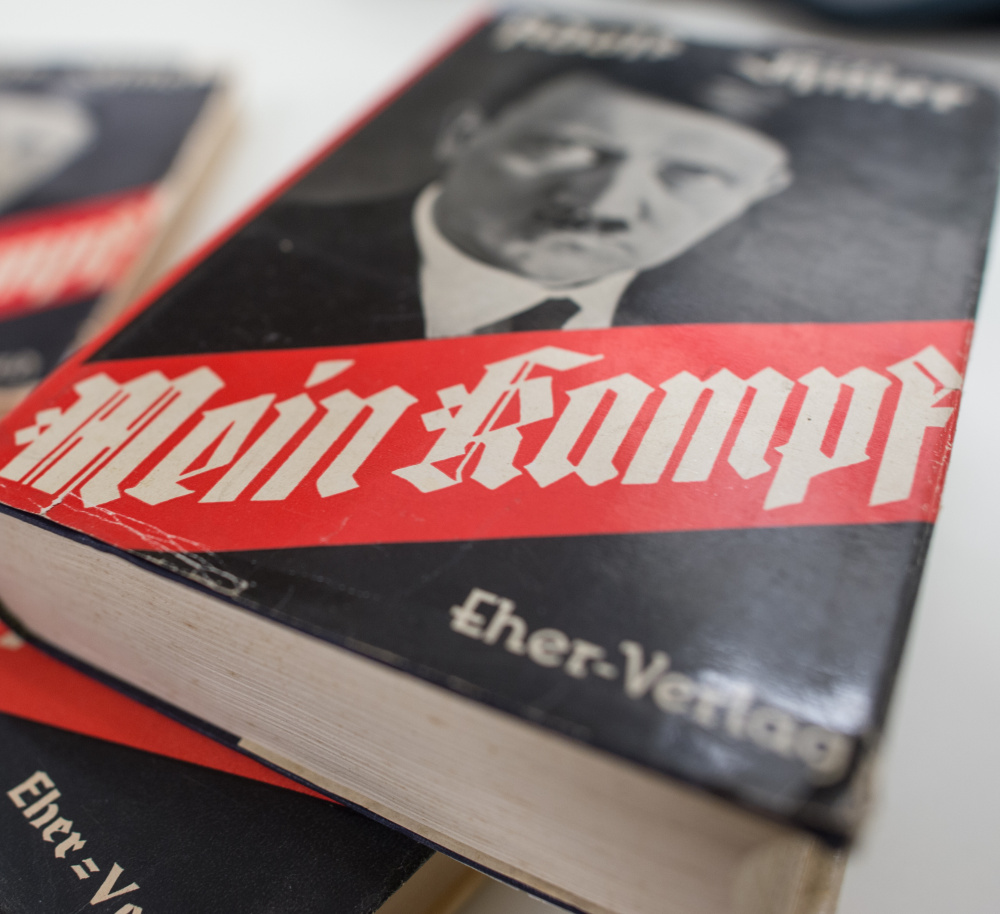BERLIN — For 70 years since the Nazi defeat in World War II, copyright law has been used in Germany to prohibit the publication of “Mein Kampf” – the notorious anti-Semitic tome in which Adolf Hitler set out his ideology.
That will change next month when a new edition with critical commentary, the product of several years’ work by a publicly funded institute, hits the shelves.
While historians say it could help fill a gap in Germans’ knowledge of the era, Jewish groups are wary and German authorities are making it clear that they still won’t tolerate any new “Mein Kampf” without annotations.
Under German law, a copyright expires at the end of the year 70 years after an author’s death – in this case, Hitler’s April 30, 1945, suicide. That means Bavaria’s state finance ministry, which holds the copyright, can no longer use it to prevent the work’s publication beyond Dec. 31.
The book has been published in several other countries; in the U.S., for example, Bavaria never controlled the copyright.
In Germany, many argue that holding back “Mein Kampf” merely created mystique around the book. The idea of at least a partial version with critical commentary for the German market dates back as far as the late 1960s. The Munich-based Institute for Contemporary History, which is behind the new version, sought and was denied permission to produce the book in the mid-1990s when it published a volume of Hitler’s speeches.
Hitler wrote “Mein Kampf” – or “My Struggle” – after he was jailed following the failed 1923 coup attempt known as the Beer Hall Putsch. Millions of copies were printed after the Nazis took power in 1933.
The rambling tome set out Hitler’s ultranationalist and anti-Semitic ideology for his Nazi party, airing the idea of a war of conquest in eastern Europe.
“The book should not be underestimated as a historical source and also as a key to understanding the history of National Socialism,” the director of the Munich institute, Andreas Wirsching, said ahead of the new edition’s mid-January publication.
The head of Germany’s Central Council of Jews, Josef Schuster, says that knowledge of “Mein Kampf” is important in explaining Nazism and the Holocaust – so “we do not object to a critical edition, contrasting Hitler’s racial theories with scientific findings, to be at the disposal of research and teaching.”
Given that “Mein Kampf” is already widely available in university libraries and online, “we don’t see a need to print more copies of it and thus ensure mass distribution, including of an annotated version,” said Ronald Lauder, president of the World Jewish Congress.
The publishers note that the book is already freely available secondhand and online, not to mention in other languages, without annotations.
Send questions/comments to the editors.



Success. Please wait for the page to reload. If the page does not reload within 5 seconds, please refresh the page.
Enter your email and password to access comments.
Hi, to comment on stories you must . This profile is in addition to your subscription and website login.
Already have a commenting profile? .
Invalid username/password.
Please check your email to confirm and complete your registration.
Only subscribers are eligible to post comments. Please subscribe or login first for digital access. Here’s why.
Use the form below to reset your password. When you've submitted your account email, we will send an email with a reset code.